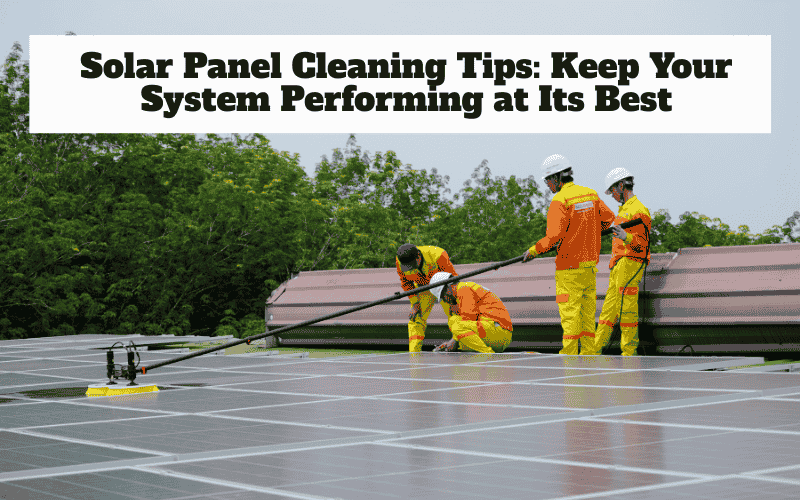- business@first-powersolar.com
- The World Centre, Sen. Gil J. Puyat Ave, Makati, Metro Manila

Keeping your solar panels clean isn’t just about aesthetics—it’s about performance and energy efficiency. Dirt, dust, bird droppings, and debris can block sunlight and reduce output by up to 20% or more.
Whether you’re a homeowner, installer, or solar enthusiast, knowing how to properly clean your panels will help you get the most out of your investment.
Solar panels work best when they’re exposed to direct sunlight. Over time, panels can collect:
Dust and dirt
Pollen
Leaves and branches
Bird droppings
Pollution residue
This buildup can block sunlight, reduce system efficiency, and even cause hot spots or long-term degradation if not addressed.
It depends on your location:
Urban areas: every 6–12 months
Dusty/rural areas: every 3–6 months
Near trees or birds: check quarterly
Most systems benefit from a twice-a-year cleaning at minimum.
1. Clean Early in the Morning or Late in the Afternoon
Panels are cooler and safer to work on when the sun isn’t at its peak. Avoid cleaning hot panels, as sudden temperature changes can crack the glass.
2. Use Soft Tools Only
Use a soft sponge, microfiber cloth, or a soft-bristle brush. Never use steel wool or abrasive pads that could scratch the panel surface.
3. Use Clean, Soapy Water
Plain water works in most cases, but for tough grime, add a little mild dish soap. Avoid harsh chemicals or pressure washers.
4. Avoid Walking on Panels
Walking on panels can damage them. Use a secure ladder and clean from the edge or use a telescopic pole.
5. Consider Hiring a Pro
For hard-to-reach panels or large arrays, it may be safer and more efficient to hire a professional solar panel cleaning service.
No. Pressure washers can damage the surface and seals of your panels. Use gentle water pressure and soft tools instead.
Rain can help rinse off light dust, but it won’t remove sticky residues like bird droppings or pollution buildup. Manual cleaning is still needed.
Yes. Even light dust can reduce energy output. Heavily soiled panels can lose 15–25% or more of their potential energy production.
Empowering a sustainable future with cutting-edge solar solutions, First Power Solar Inc. is committed to delivering reliable and efficient renewable energy for businesses
Get updates on special events, news & trends